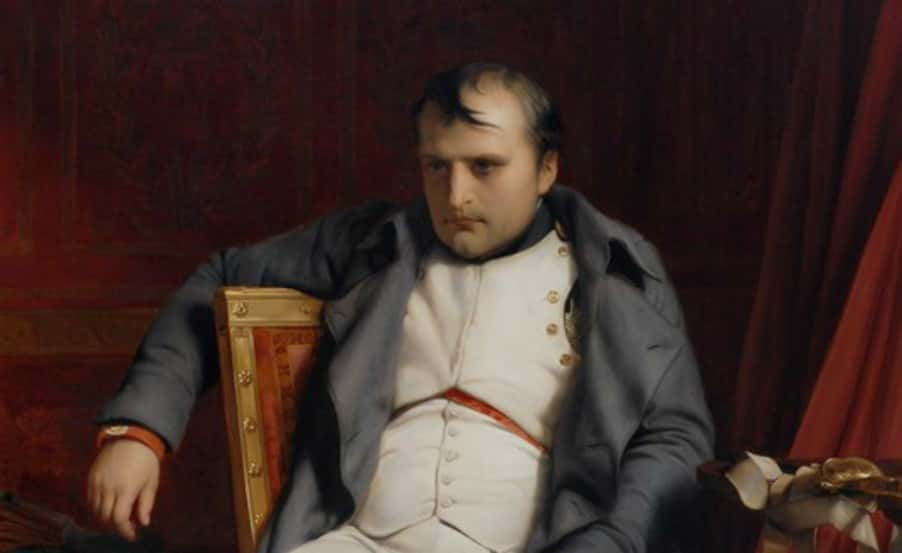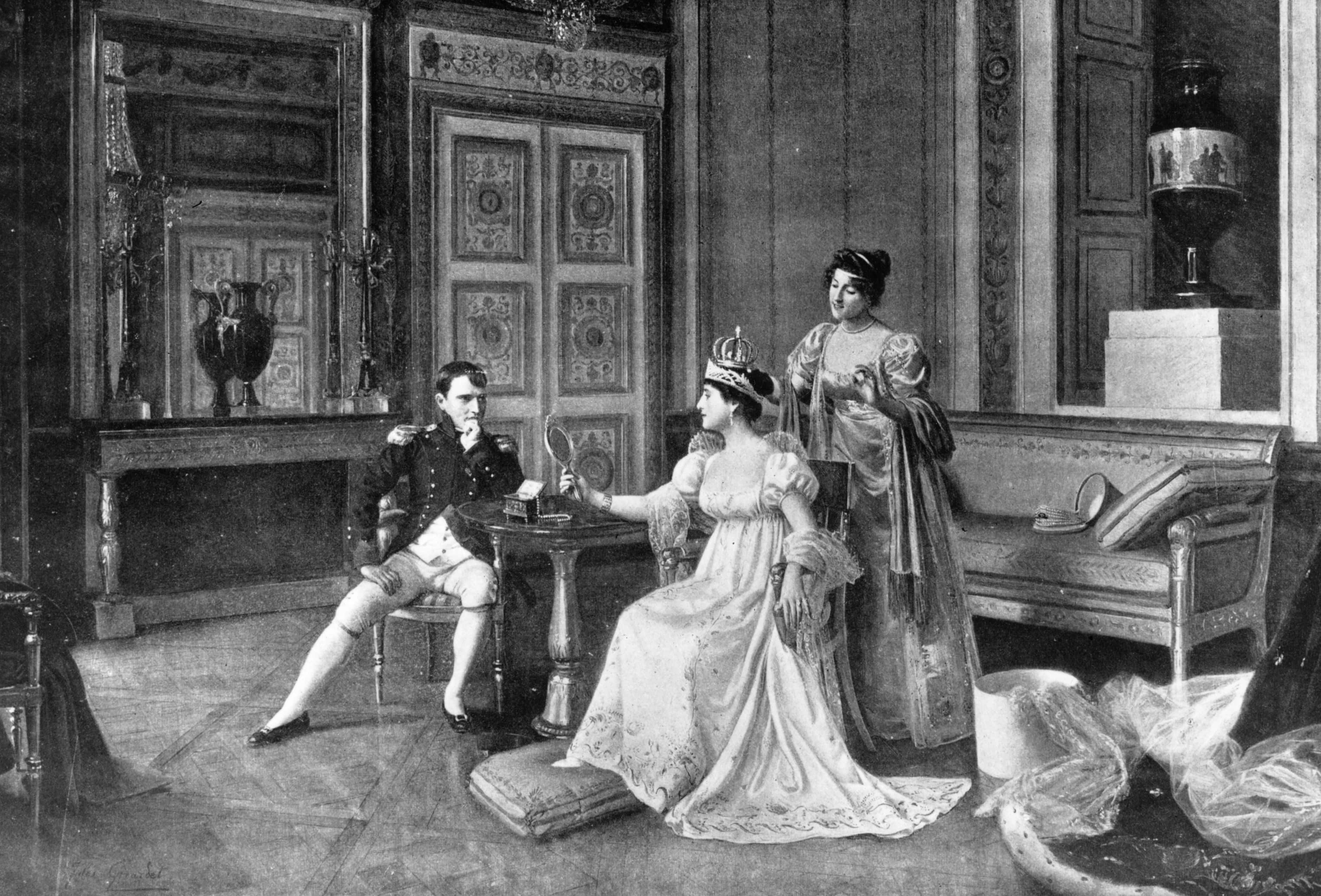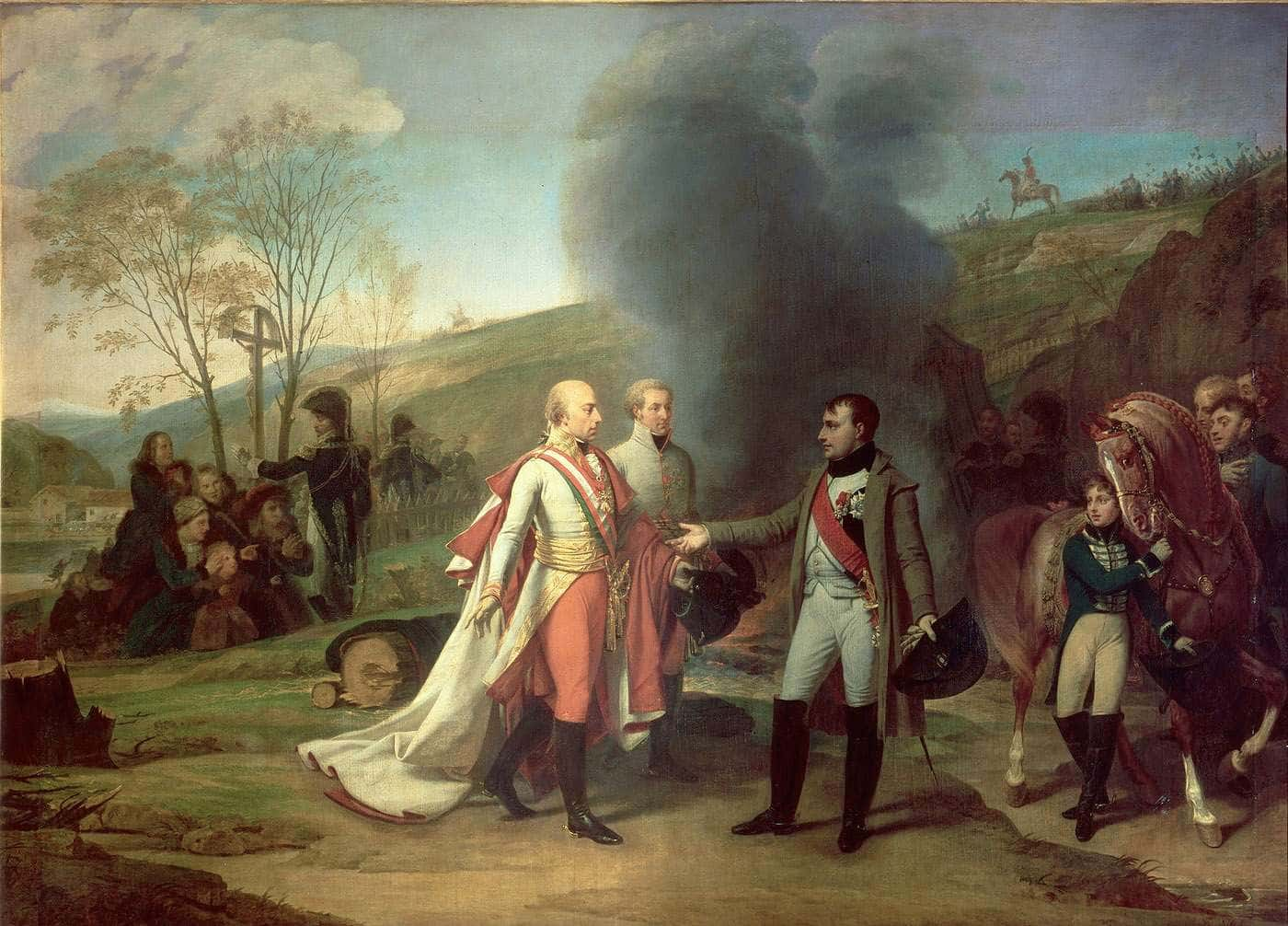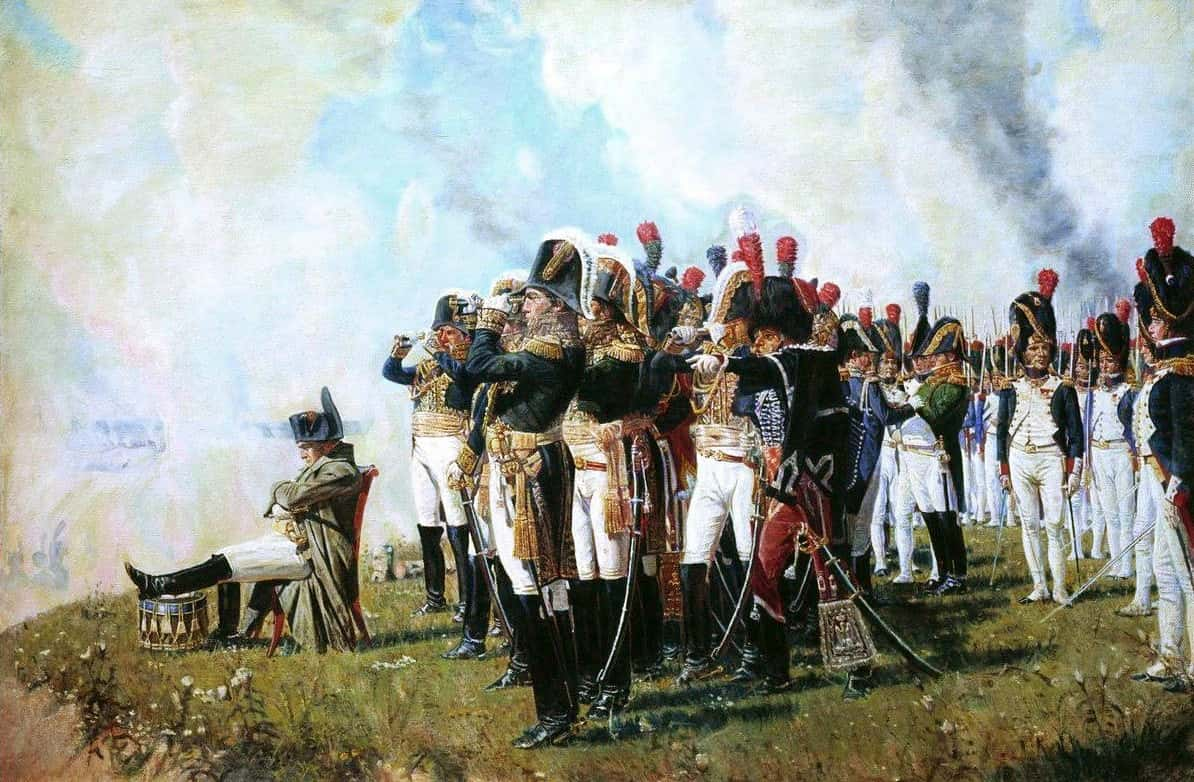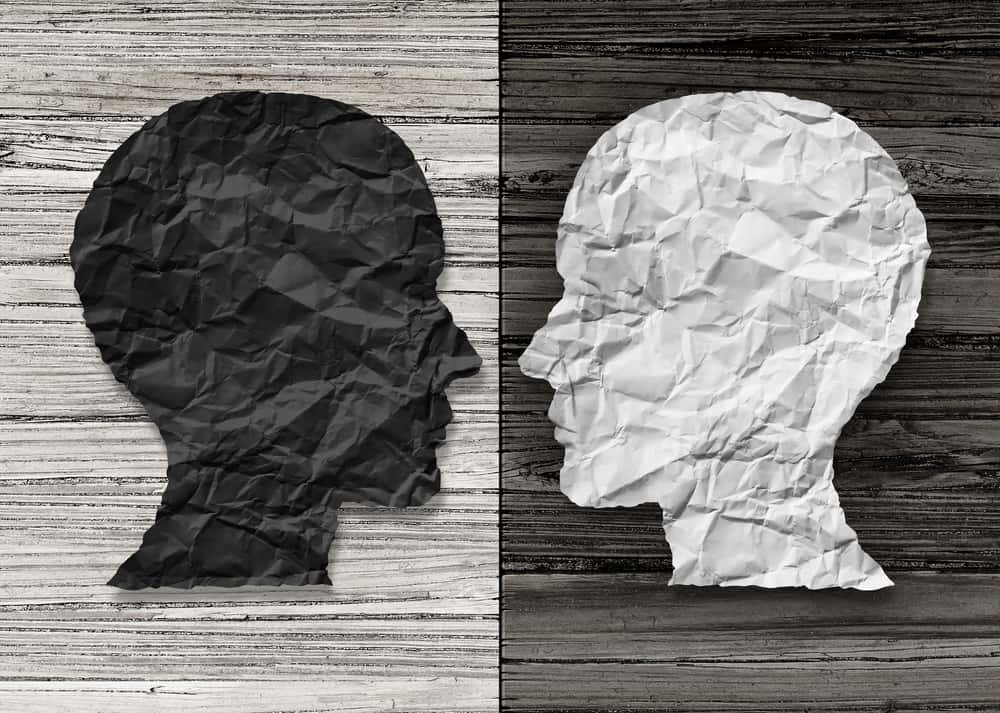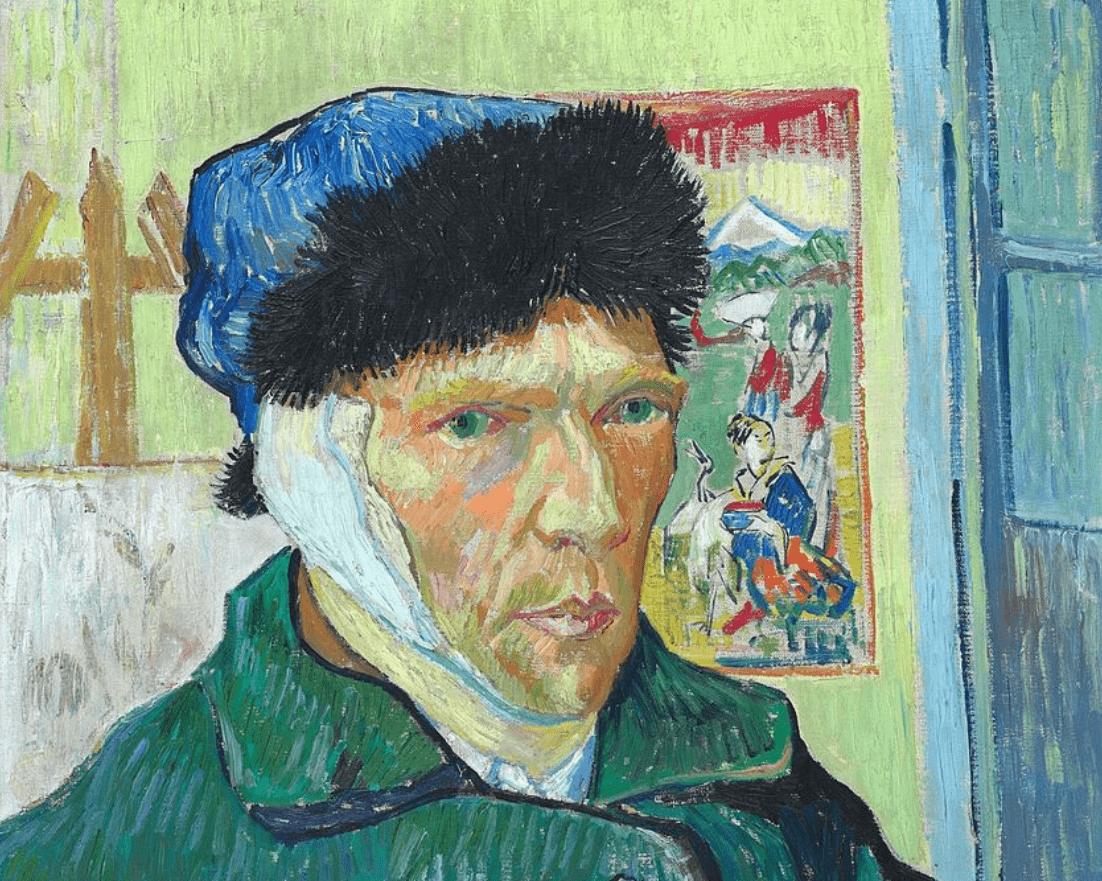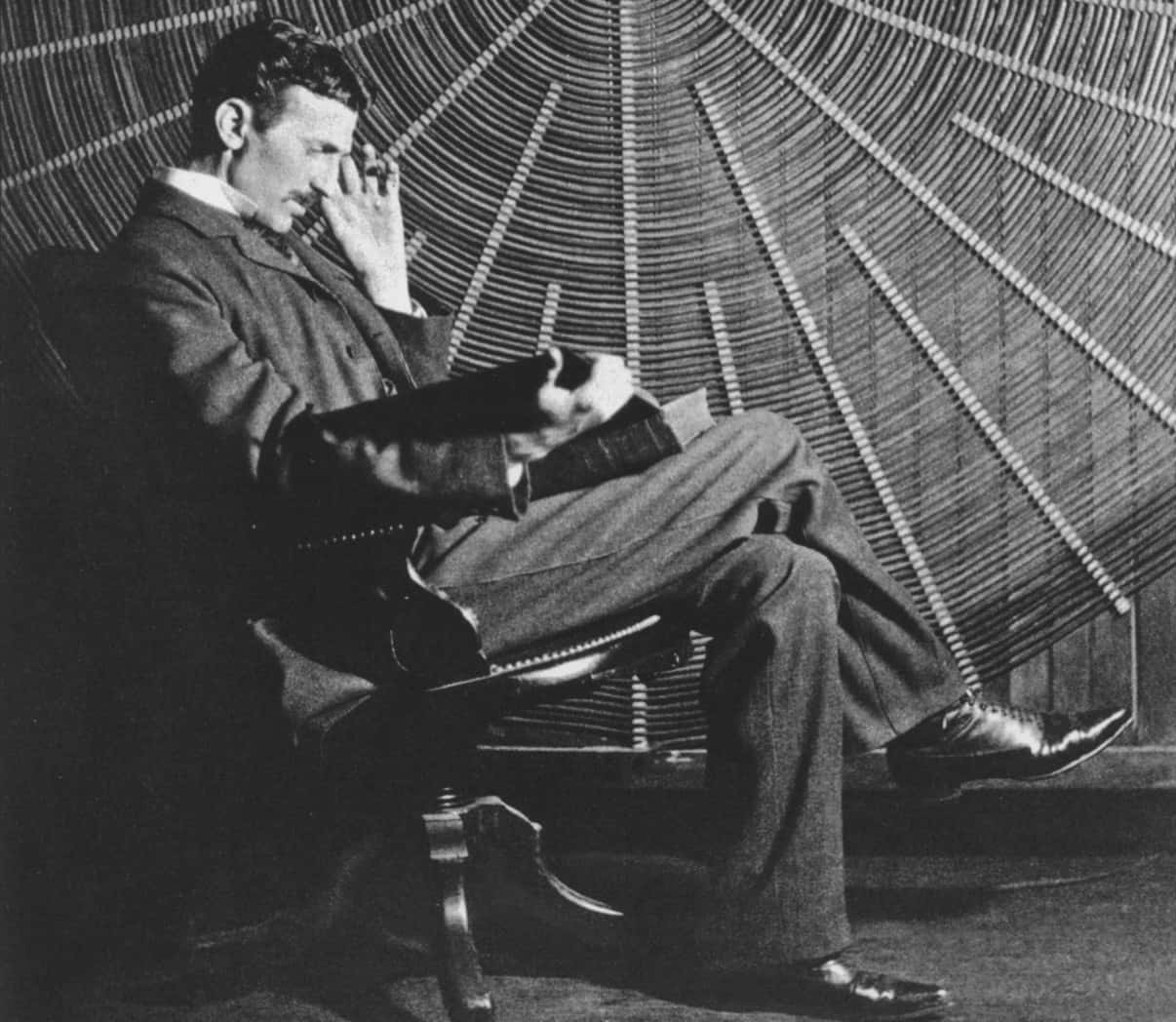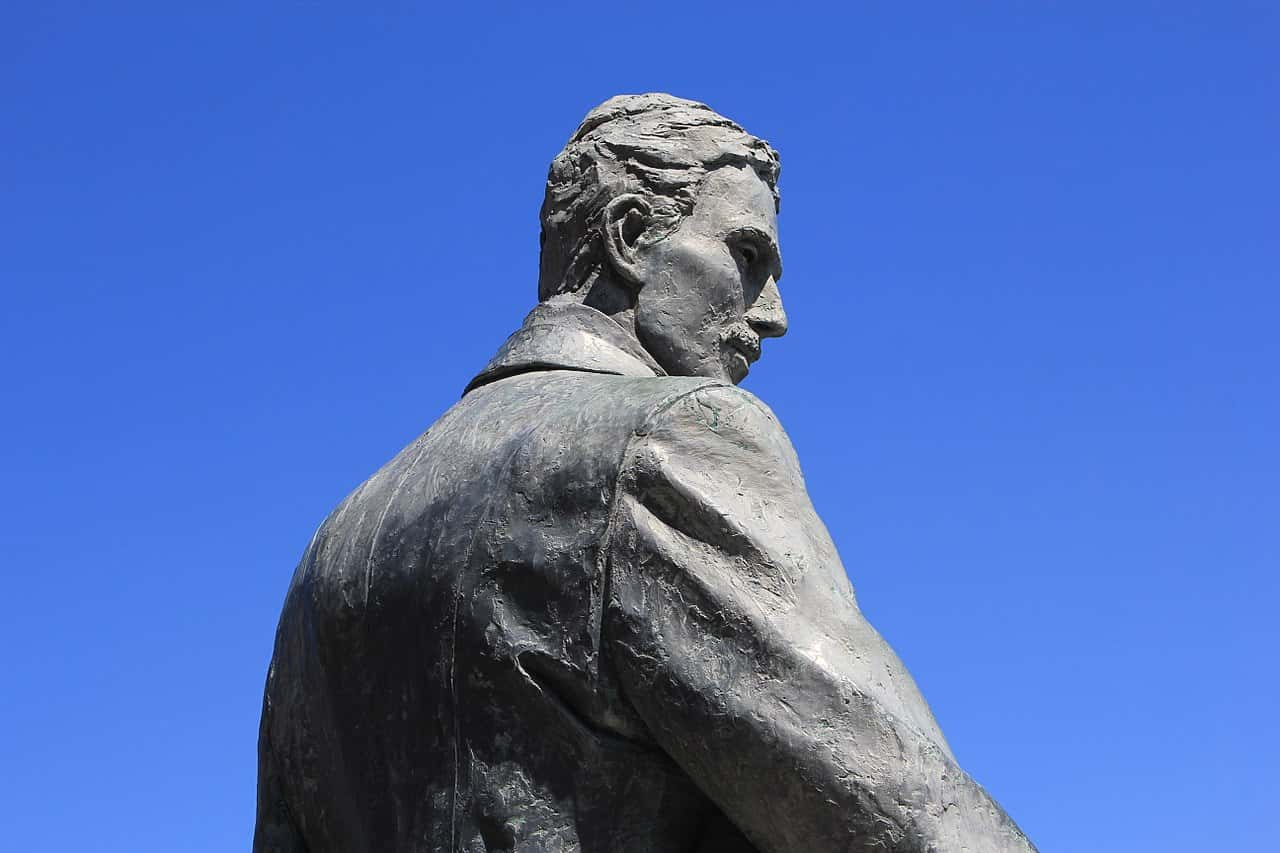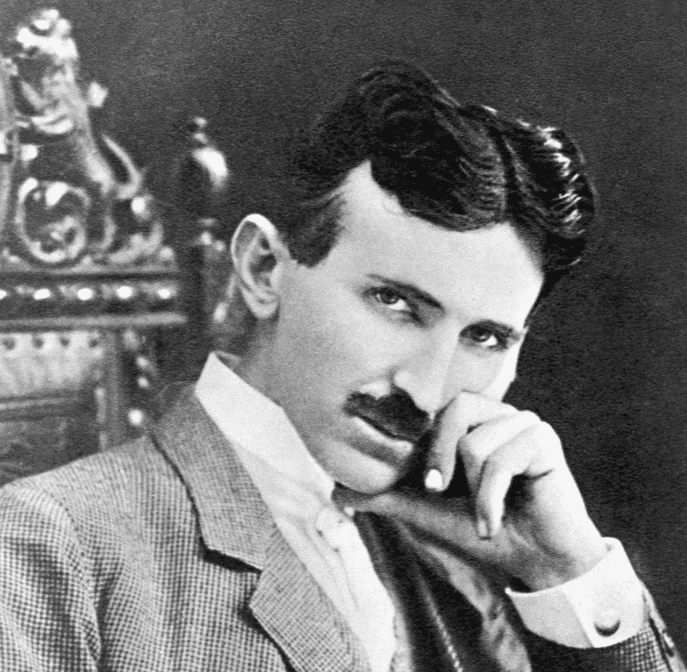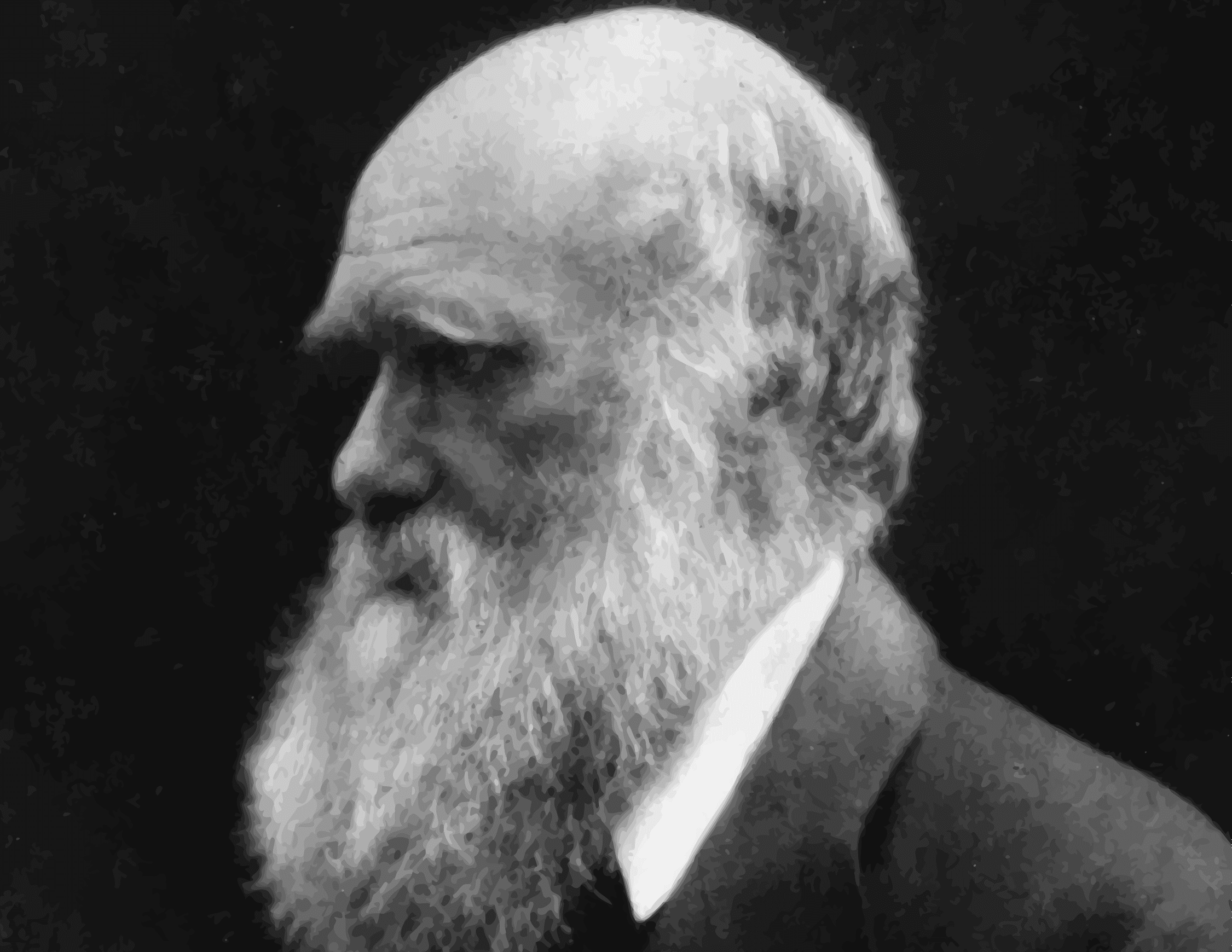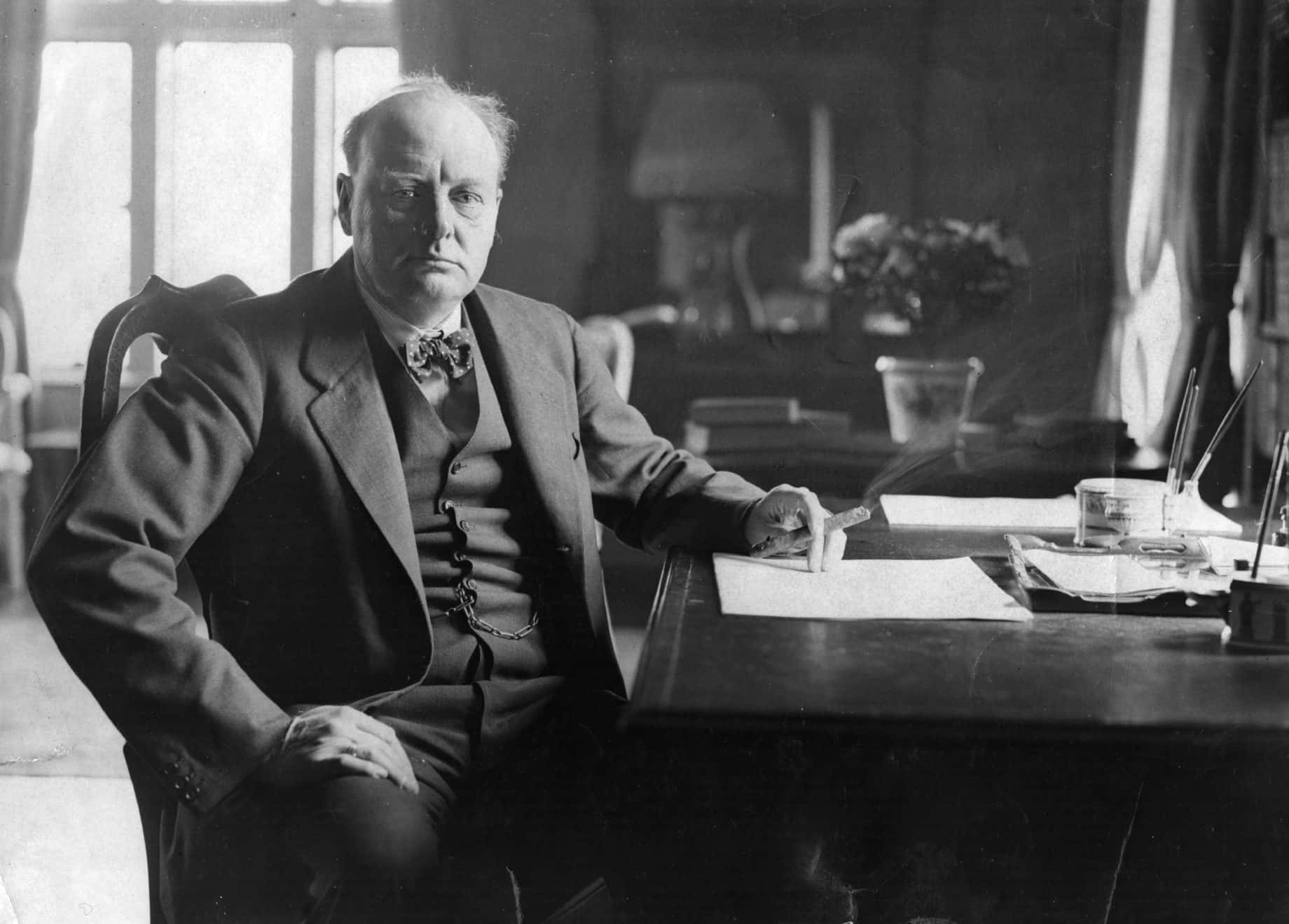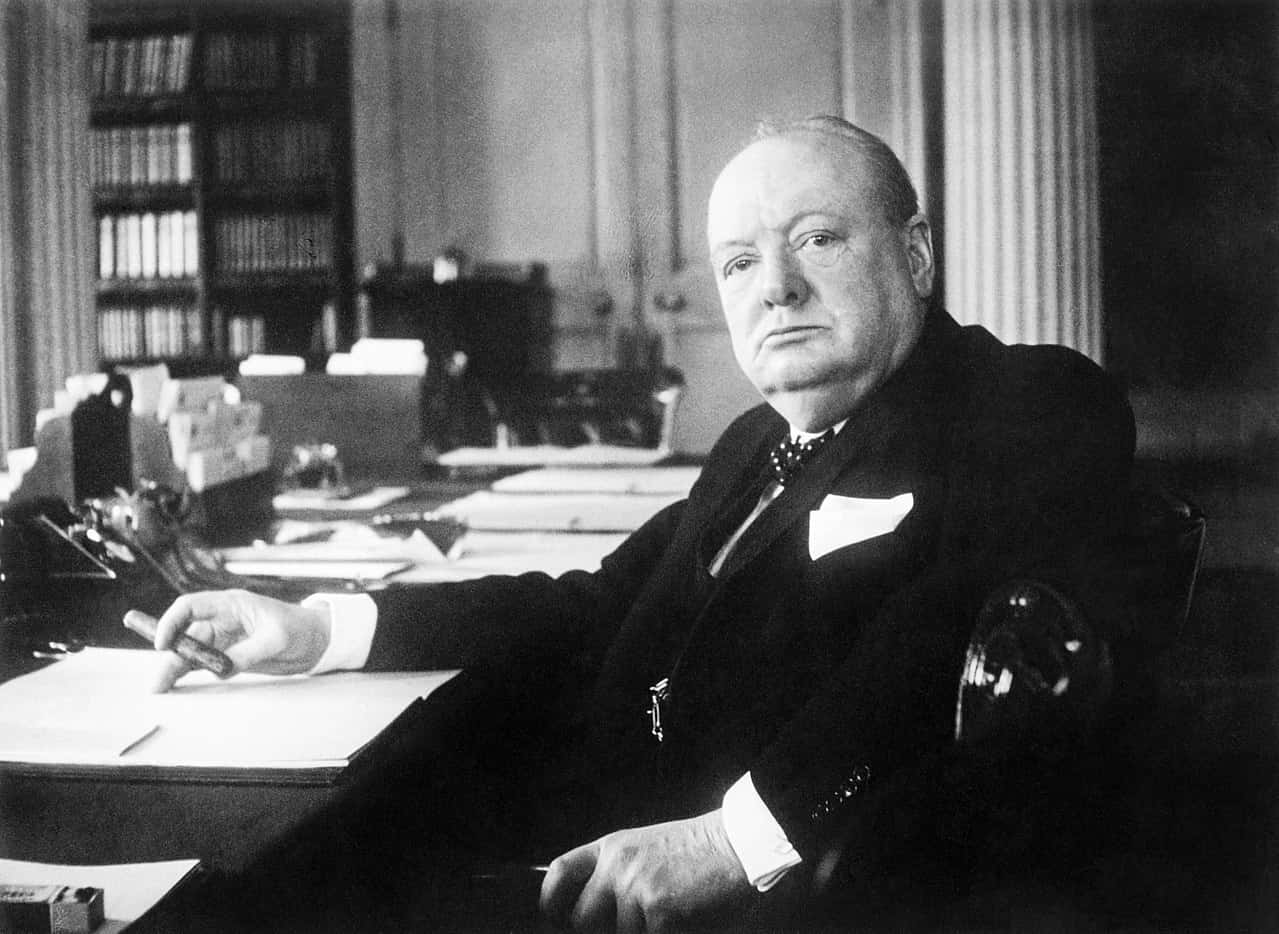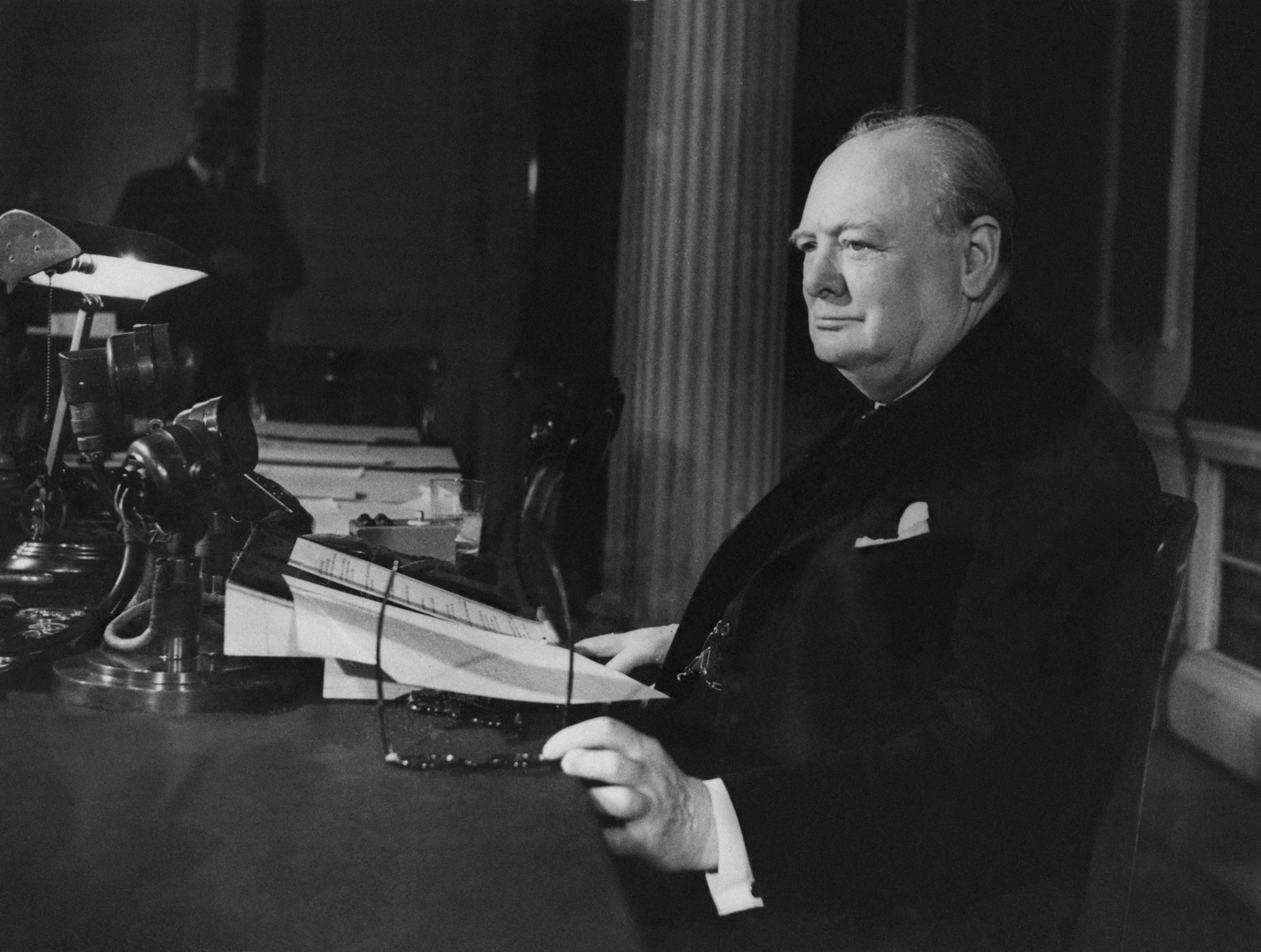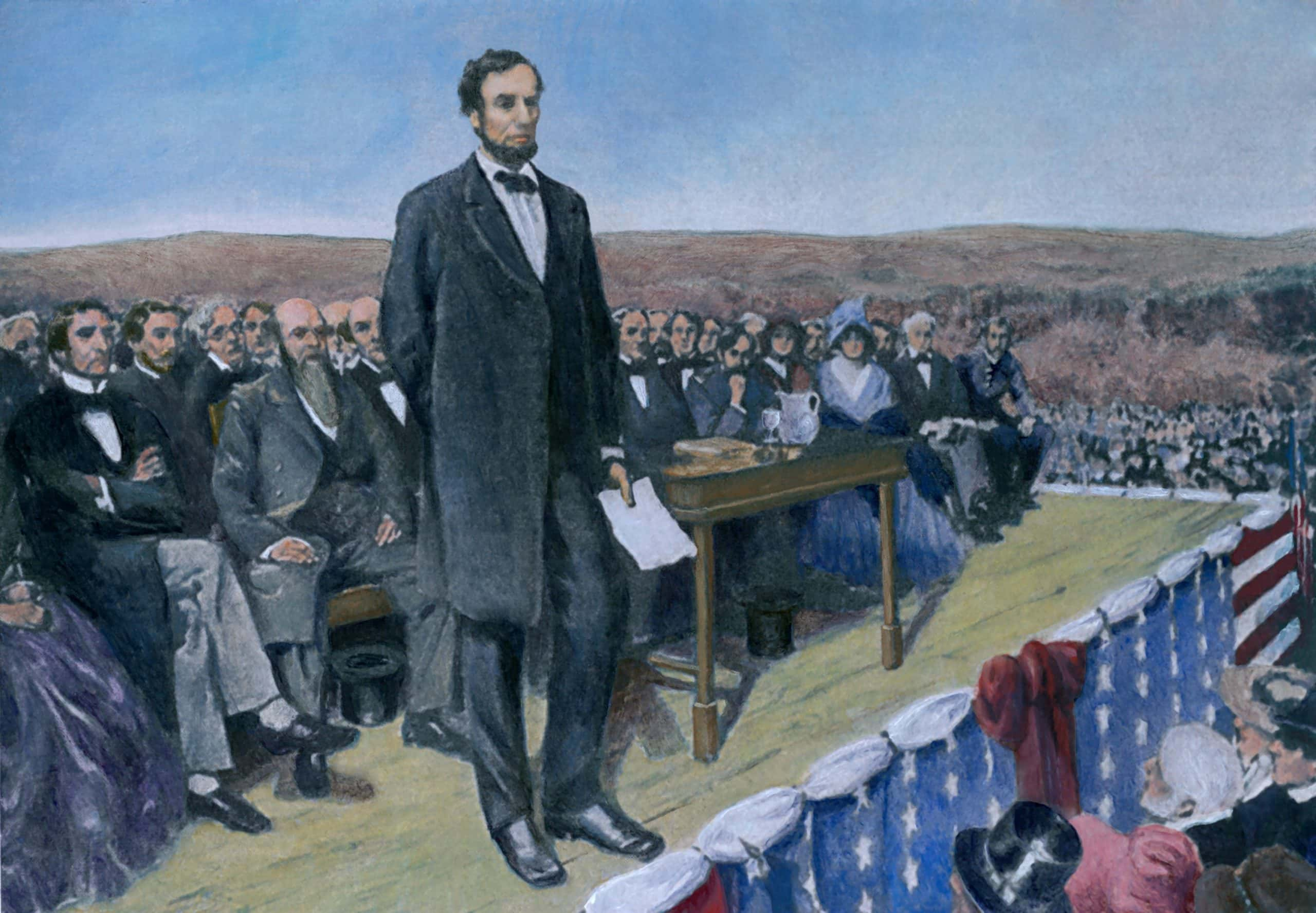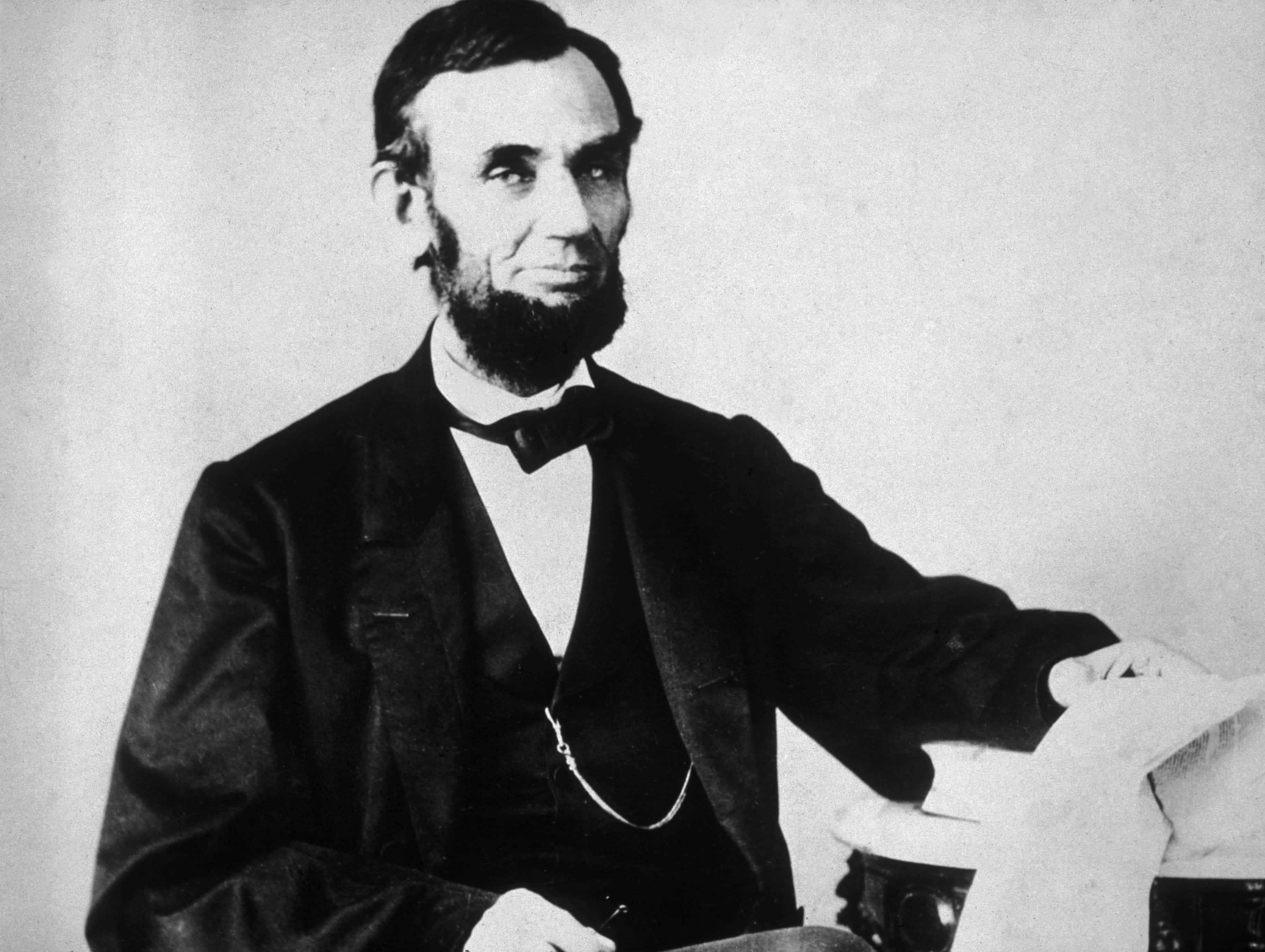The phrase "mad monarch" exists for a reason: In more cases than we might expect, famous historical figures grappled with terrifying mental health disorders. From Abraham Lincoln's delusions to Van Gogh's struggles with insanity, here are 50 little-known facts about the mental health struggles of history's most iconic figures.
Mad Historical Figures
1. The Little General That Could
The French military legend Napoleon Bonaparte had a notorious case of narcissistic personality disorder (NPD). Napoleon’s mental health challenges explain a lot of his most controversial behaviors, but also raise some new questions…
2. School Days
Despite his family's frugal origins, Napoleon always felt that he was destined for greatness—and it showed. While still in school, the future general would often distance himself from his classmates and keep to himself. Historians have described his childish egotism as “prickly defensive arrogance.”
3. A Refuge in Books
Napoleon's disorder made him feel like he was alone in the world, but funnily enough, that sadness may have helped make him who he was. Think about it like this: Because Napoleon hated socializing and felt like he had to be smarter than everyone else, he spent hours studying every subject under the sun.
4. A Long List
Napoleon was always an overachiever, even when it came to the number of mental health issues he battled. On top of narcissistic personality disorder, he also may have struggled with class inferiority, money insecurity, intellectual envy, sexual anxiety, social awkwardness, and hypersensitivity to criticism.
5. Vive La France!
Historians believe that Napoleon's narcissistic personality and various other social anxieties actually came to define his life's work. Napoleon's initial motivation for getting involved in the French Revolution was to create a society that didn't care about traditional barriers. In other words, he wanted to make a world where young Napoleon would have felt more welcome.
6. A Prude Dude
But of course Napoleon's disorders had negative side effects too, such as his notoriously strange love life. The general was seriously weirded out by romantic relationships. He hated PDA and even wrote a passionate diatribe about the counter-productiveness of sexuality. Way to woo the ladies, Napoleon.
7. No More Mr. Nice Guy
Napoleon’s anxiety and social awkwardness often got in the way of his diplomatic efforts. For example, he had a very intense fear of being perceived as weak—and it prevented him from ever being willing to make any concessions. Napoleon would even take his demands so far that he often left other countries feeling thirsty for revenge.
8. Pulling a 180
Napoleon’s mental health conditions help explain his bizarre and now-infamous decision to appoint himself as Emperor of the French in 1804. In a classic case of historical "take-backsies," Napoleon had actually led a revolution against monarchies...just a few years before making himself the monarch of all monarchs.
9. Oh No You Didn’t
Napoleon’s insecurities caused him to fly into fits of rage whenever he received bad press. He was particularly infuriated when a British cartoonist depicted him as a buffoon and mocked his family’s non-royal origins. This was all too much for him to handle and, as a result, he heavily censored the media and cracked down on his political opponents.

Sign up to our newsletter.
History’s most fascinating stories and darkest secrets, delivered to your inbox daily. Making distraction rewarding since 2017.
10. But I Can’t Lose!!
Napoleon’s downfall may have been caused by his underlying mental health issues. His narcissism and insecurity, which made him feel an obsessive need to project strength even when it was unwise to do so, led to his ill-fated invasion of Russia. After Napoleon refused to make peace, he fought with the rest of Europe. It...did not go well.
11. Strange Composition
Wolfgang Amadeus Mozart may be the most famous musician of all time, but in his own time he was also known for taking "mad genius" to the next level. Mozart often made vulgar references to inappropriate topics. Most observers probably brushed this off as just a strange quirk, but we now know there was likely more to this story than they realized...
12. The Story Behind the Swearing
Some historians now believe that Mozart likely suffered from Tourette’s syndrome, a mental illness that causes its sufferers to burst out uncontrollably with twitches and swearing. Evidence of Mozart’s outbursts can even be found in some of his writings, in which he makes unexpected references to “feces” and “buttocks.”
13. A Purr-fect Example
On one bizarre occasion, Mozart was in the middle of performing for royalty when he suddenly abandoned his piano as soon as a cat entered the room to go and play with it. On an impulsive whim, he had decided that playing with that cat was more important than finishing his command performance. Tourette’s could very well explain these kinds of incidents.
14. His Way of Coping
Mozart’s Tourette’s may very well have influenced his music, too—and in no small way. Prior to his fame, music had moved away from complex arrangements and was favoring simpler fare. A desire for control, something that often accompanies Tourette’s, could very well have led Mozart to revive outdated styles in his ambitious music.
15. Ode to Joy...and Sadness
Mozart was far from history’s only influential musical composer to have suffered from a mental health issue. In fact, several historians have suggested that Ludwig van Beethoven likely suffered from bipolar disorder. After all, he was known to have frequent fits of mania and drastic mood swings.
16. Can I Have Your Attention, Please?
Some examples of Beethoven’s extreme mood swings included stopping performances in the middle if he didn’t feel he had the audience’s full attention, angrily refusing to perform if he hadn’t been asked ahead of time, and clashing with aristocrats over his refusal to conform to their accepted social norms and etiquette.
 Flickr, Royal Opera House Covent Garden
Flickr, Royal Opera House Covent Garden
17. The Worst of Times
Beethoven’s struggles with bipolar disorder escalated throughout his life. He even went through a long period of constant emotional devastation and severe depression. During this dark period, beginning in early 1813, he composed no music, stopped taking care of his physical appearance, and even threw public tantrums at dinner parties.
18. Striking While Iron Is Hot
As big a hit as his musical productivity took during some of his emotional low periods, Beethoven's emotional highs made him seemingly unstoppable. It’s been said that Beethoven could compose multiple works from start to finish in one sitting when he felt up to it, a perfect example of the drastic changes bipolar disorder can have on one’s personality.
19. Turning to the Bottle
Unfortunately, proper treatments for mental disorders such as bipolar were not as readily available in Beethoven’s day. Because of this, the composer turned to a destructive alternative in order to cope with his struggles—alcohol. Sadly, Beethoven’s many years of alcohol consumption ultimately led to the liver failure that caused his death in 1827.
20. His Darkest Hour
The depression caused by his bipolar disorder got so bad for Beethoven that he actually contemplated suicide during his lifetime. Letters that he wrote to his brothers have documented this fact, and paint a jarring picture of how difficult and painful it must be for anyone who is going through these kinds of struggles.
21. Dramatic Impact
As unfortunate and devastating as Beethoven’s mental health struggles certainly were, they also appear to have contributed dramatically to his incredible musical achievements. Some music scholars say that the dramatic changes in tempo and volume in his music perfectly reflect the experience of drastic mood swings.
22. Painting a Sad Picture
The Dutch painter Vincent Van Gogh was an eccentric and strange person, but the situation was far more complicated than just an odd personality. He almost certainly suffered from some form of mental illness, though to this day, no one is quite sure exactly what plagued him. But that doesn't mean scholars haven't made educated guesses...
23. Endless Possibilities
From epilepsy and self-injury disorder, to bipolar disorder, borderline personality disorder, and anxiety, historians have lots of ideas about what might have caused Van Gogh's perplexing behavior. Some have also noted that schizophrenia likely ran in the painter’s family, adding another piece to the sad puzzle.
24. I Ear What You’re Saying
The infamous story of Van Gogh's mental illness is, of course, when he cut off his own ear. When the artist was admitted to a local hospital following the terrible incident, his condition was described as “acute mania with generalized delirium.”
25. No End in Sight
Unfortunately, Van Gogh’s struggles were never fully resolved. In 1890, his pain ended, but for the worst possible reason. He shot himself in the chest with a revolver and died in the hospital the following day. According to his brother, who was by his side in his last moments, the painter’s last words were: “The sadness will last forever.”
26. A Serious Case
Nikola Tesla was one of the greatest inventors and scientists in history, and he remains admired by countless people all over the world to this day. Nevertheless, Tesla was known to have many quirks, including, ahem, the fact that he fell in love with a pigeon "as a man loves a woman" (his words!). Many people now believe that he suffered from a serious case of Obsessive-Compulsive Disorder (OCD).
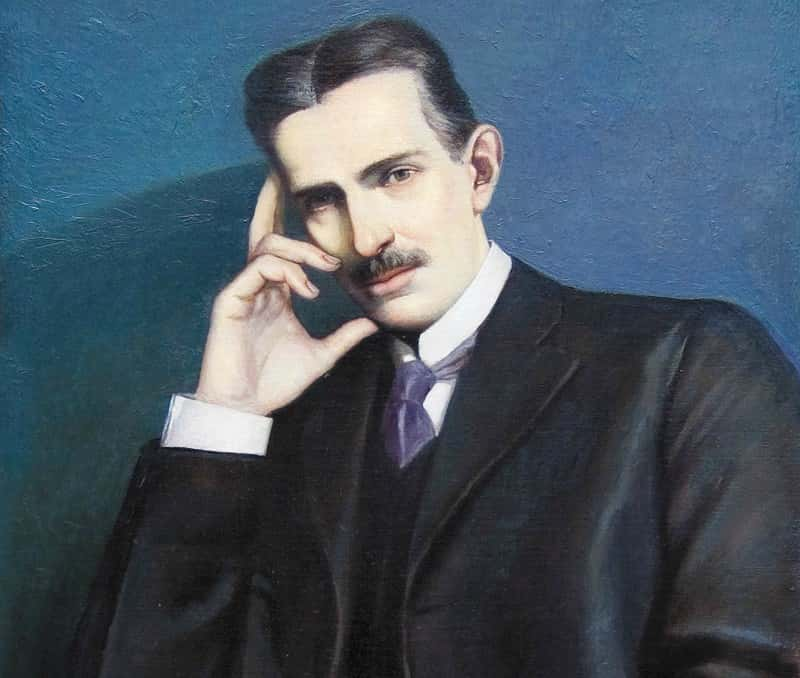 Wikimedia Commons, Ivan Veličković
Wikimedia Commons, Ivan Veličković
27. You Are What You Touch
Tesla’s OCD caused him to be extremely picky about touching or being around certain objects. For example, he hated jewelry, refused to touch hair, and despised anything that was round-shaped. He was also very concerned about germs and cleanliness, refusing to shake hands with others and often cleaning his kitchen utensils with up to 18 napkins before using them.
28. His Lucky Number
Tesla’s OCD might also explain his strange obsession with the number three. As bizarre and confusing as this may sound, yes—he did indeed have a full-blown obsession with a number. He even claimed that the number three and its multiples were the “key to the universe,” and that everything in existence revolved around divisions of threes. He wouldn’t even stay in hotel rooms whose numbers weren’t divisible by three!
29. Pulling All-Nighters
Another likely impact of Tesla’s OCD was his very extreme work ethic. He often neglected to get proper amounts of sleep and would continue working on his experiments all night long once he started on them. His lab assistants reported that he would sometimes collapse from exhaustion in the middle of experiments, and his neighbors complained about being kept up by the strange noises coming from his house late at night!
30. Having a Vision
Tesla also spoke about having experienced hallucinations, a sign that he may have suffered from additional mental health conditions on top of his OCD. Amazingly, he actually attributes his invention of the AC motor to an inspiration that he experienced during one of these hallucinations—specifically, during one in which he witnessed lights and flames flashing in front of him.
31. The Origin of the Book
Charles Darwin secured his place in history when his biology research on the Galapagos Islands led to the publication of On the Origin of Species in the 19th century. But as well known as his theories have become, the story of how his personal life was going while completing this work has been far less told. Many people are surprised to learn that Darwin was struggling with a severe case of agoraphobia while writing his magnum opus.
32. Looking Out for Number One
Darwin’s agoraphobia (anxiety and fear of putting oneself in situations where one would feel trapped, embarrassed, or helpless) led him to adopt a reclusive lifestyle upon his return home from his famous voyage, rarely leaving his house from the age of 30 onwards. His anxiety was so severe that he even avoided speaking to his own children.
33. From Bad to Worse
When the famous controversies first erupted over Darwin’s book and theory of evolution, his anxiety and agoraphobia became exacerbated. He was extremely distressed by the fact that so many people were offended by his research, and even admitted to wanting to commit suicide at times over the backlash he received from his critics.
 Wikimedia Commons, John Collier
Wikimedia Commons, John Collier
34. Reviewing the Notes
In addition to agoraphobia and anxiety, Darwin likely suffered from several other mental health conditions as well. Thanks to the fact that he kept a detailed journal of every symptom that he experienced, experts know enough about his life to now suspect that he may also have suffered from OCD and hypochondria.
35. The Black Dog
You’d be hard-pressed to think of a more accomplished world leader than Winston Churchill. But when he wasn’t protecting Britain from the horrors of fascism, he was struggling with what he himself referred to as “the black dog of depression.” It had plagued Churchill since at least his 30s.
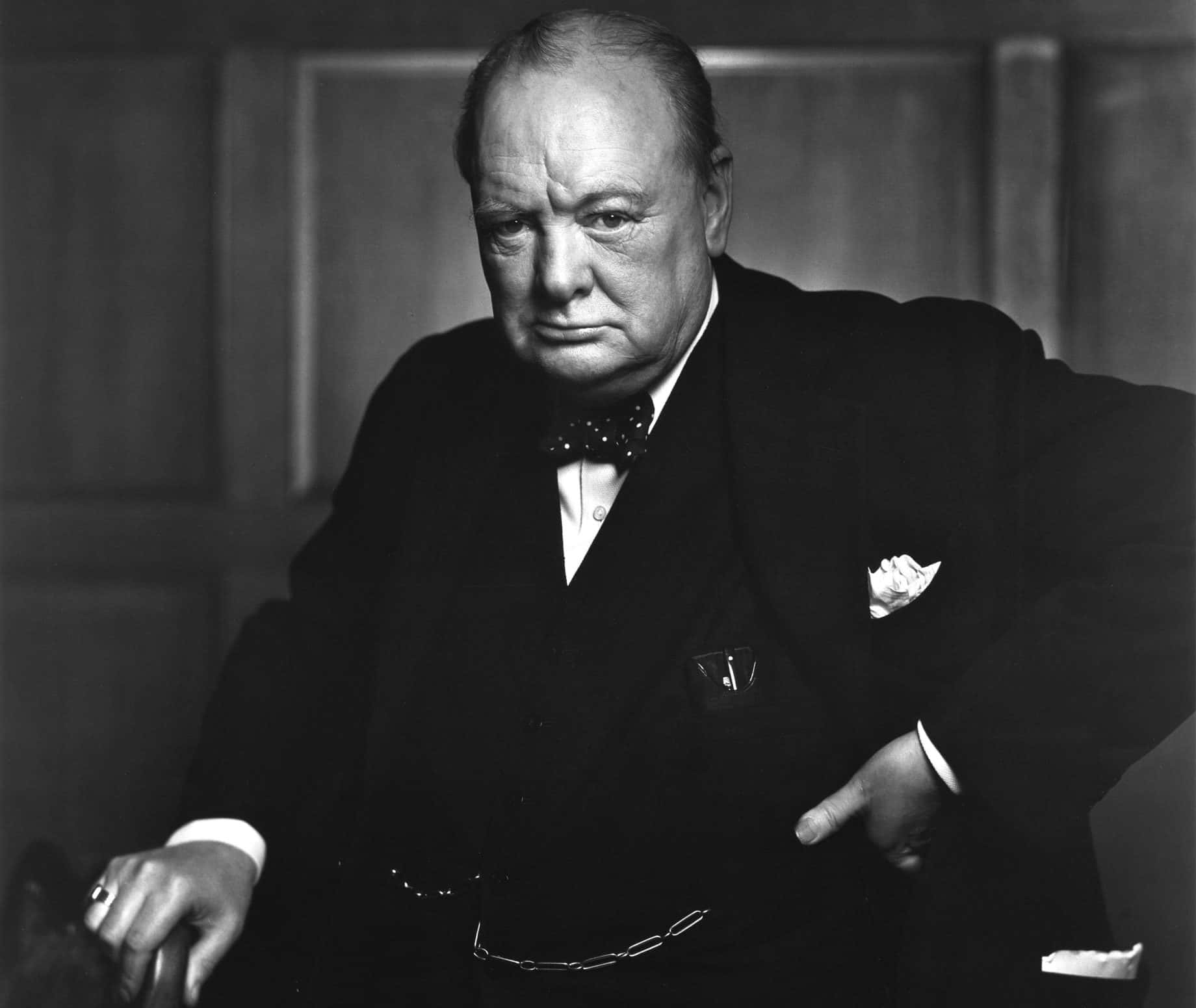 Wikimedia Commons, Yousuf Karsh
Wikimedia Commons, Yousuf Karsh
36. Keep Rolling Along
As hard as this may be to imagine, Churchill experienced suicidal thoughts and even avoided standing near the edge of train platforms out of fear that he might impulsively jump onto the tracks. In his words, “I like to stand right back and if possible get a pillar between me and the train...A second's action would end everything. A few drops of desperation.”
37. So What’s the Verdict?
Even though his doctor, Lord Moran, reportedly diagnosed Churchill's turbulent moods as bipolar disorder, some historians and experts argue that the evidence does not support this diagnosis. But no matter which ailment he truly had, one thing is certain—it was not a pleasant experience for him.
38. The Writing on the Wall
Churchill’s depression and mood swings often caused him to stay up all night working on his various writings. This might explain how he managed to produce a total of 43 books while still managing to uphold all of his political duties at the same time. So, the next time you read one of Churchill’s historic writings, remember that you may only be able to do so as a result of his mental health struggles!
39. Rendering unto Caesar the Things that Are Caesar’s
Although we know a lot more about the historical figures of recent centuries than we do about ones from the distant past, they were certainly not the first ones to suffer from mental health struggles. Even the famous ancient Roman emperor Julius Caesar is believed by many experts to have likely suffered from either epilepsy or a combination of small strokes and vertigo.
40. An Honest Look at Honest Abe
There is no president in American history more famous than Abraham Lincoln, the man who freed the slaves and saved the union. Nevertheless, many people are surprised to discover that Honest Abe wasn't immune from struggles. He suffered from clinical depression for the majority of his adult life.
41. Like Father Like Son
Although it was never properly diagnosed at the time, clinical depression and other mental health struggles seemed to run in Lincoln’s family. Neighbors described his father Tom as flipping from his jovial and social to gloomy and misanthropic. Meanwhile, they described Lincoln's mother simply as “sad.”
42. A Family Matter
In addition to his father, many other family members of Lincoln’s also struggled with mental health challenges. A great-uncle once testified in court that his own mind was “deranged,” while another uncle suffered from intense mood swings. In fact, acquaintances observed that the Lincoln family’s “characteristics” consisted of “their moody spells and great sense of humor.”
43. His True Personality
With this hereditary background, it’s understandable that these unfortunate ailments could have passed down to the future president. Despite the way most of us would picture him, those who knew Lincoln described his personality as “melancholy.” Many of his friends said he was the saddest person they had ever seen.
44. A Dangerous Situation
Lincoln’s struggles were much more severe than many people assume. He had near-breakdowns on at least two occasions, and even experienced suicidal thoughts. In one instance, after a close friend passed away, people found Lincoln wandering around aimlessly in a forest—with a shotgun in his hand.
45. Not Feeling the Moment
This lifelong struggle was with Lincoln at all times—even during some of the most important moments in American history. At the 1860 Illinois state Republican Convention, he gave an impassioned speech that launched his presidential campaign. In the eyes of the public, it was one of the most triumphant moments of Lincoln's career.
However, to Lincoln himself, it didn’t quite feel that way. Witnesses said that he sat alone with his head down following the speech—and reportedly said, “I’m not very well.”
46. Turning Lemons into Lemonade
Lincoln's challenges are heartbreaking, but they could also be seen as a blessing in disguise. Some historians believe that it was precisely because of his struggles that he became the person he was. In other words, fighting a lifelong battle with depression may very well have built the exceptional character of Abraham Lincoln and forever changed the course of history.
47. A New Fact About New-ton
Sir Isaac Newton was undoubtedly one of the greatest scientists of all time, but he was also a very complicated person. Many experts nowadays point to certain examples of his behavior as evidence that the discoverer of gravity may also have suffered from bipolar disorder or schizophrenia, alongside many other mental health struggles.
48. Do You See What I See?
Unfortunately, Newton suffered from intense mood swings, wild delusions, and disturbing hallucinations. While he was a young man in college, his journals document extreme sadness, loneliness, and self-loathing. One diary includes a heartbreakingly long list of Newton's personal failings and sins.
49. What Goes Up Must Burn Down
In an episode of enraged mania that may have been caused by bipolar disorder, Newton once angrily threatened to burn his own parents’ house down to the ground, but that's not even the worst part: Young Newton specifically planned to do the deed while they were still inside. As a child, he also admitted to hurting his sister.
50. People Skills
Newton reportedly had a lot of trouble connecting with people, leading some experts today to conclude that he may also have been on the Autism spectrum. For example, he only made a few real friends in his entire life and he was so unpopular at school that people celebrated when he left. Nevertheless, even with all of the challenges he faced, he never let any of the obstacles stop him from achieving whatever he set out to do.
Sources: 1, 2, 3, 4, 5, 6, 7, 8, 9, 10, 11, 12, 13, 14, 15, 16

